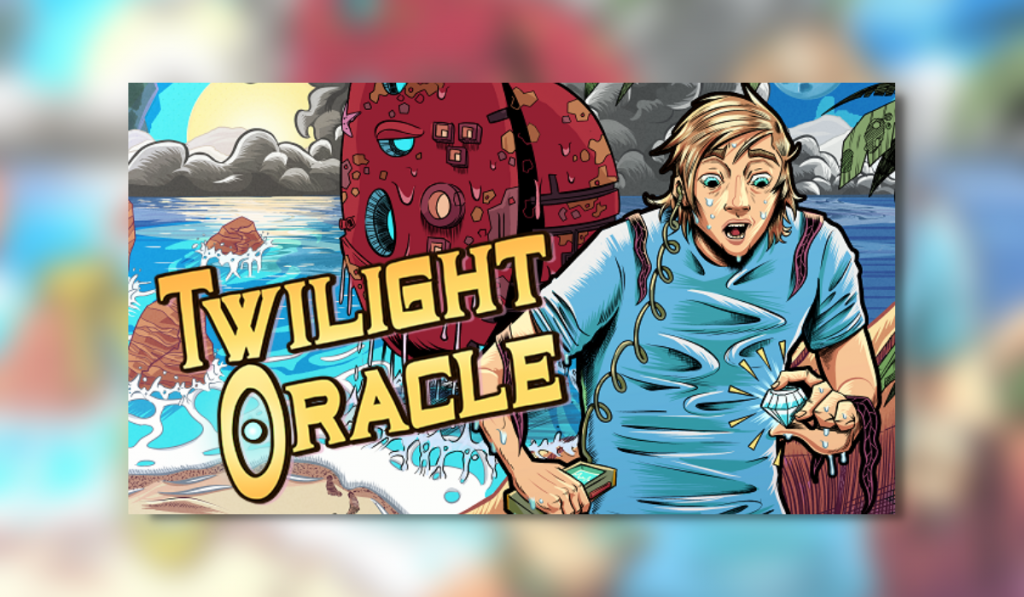
In a world of strange creatures and unknown worlds, a supernatural gift is commonplace and doesn’t stop you from being at the bottom of the class. But even a straight-F student has a chance to orchestrate monumental change. ‘80s-reminiscent developer Cosmic Void returns with another pixel art point-and-click adventure: Twilight Oracle. Blending sci-fi, fantasy and zany antics, it’s a bonkers tale that Dalí would take notes from!
Struggling student Leo is in quite the pickle. His grades are woeful, his prospects grim and his ability to breathe underwater is going to waste. Brought before the school Magistrate, he is given an ultimatum: redeem himself by retrieving a renegade disciple or be banished and stripped of his gift forever. Well, banishment would be kinda long and boring. And if he succeeded, he would be a school hero and have the chicks go crazy for him, right? Redemption, it is! How hard could it be?
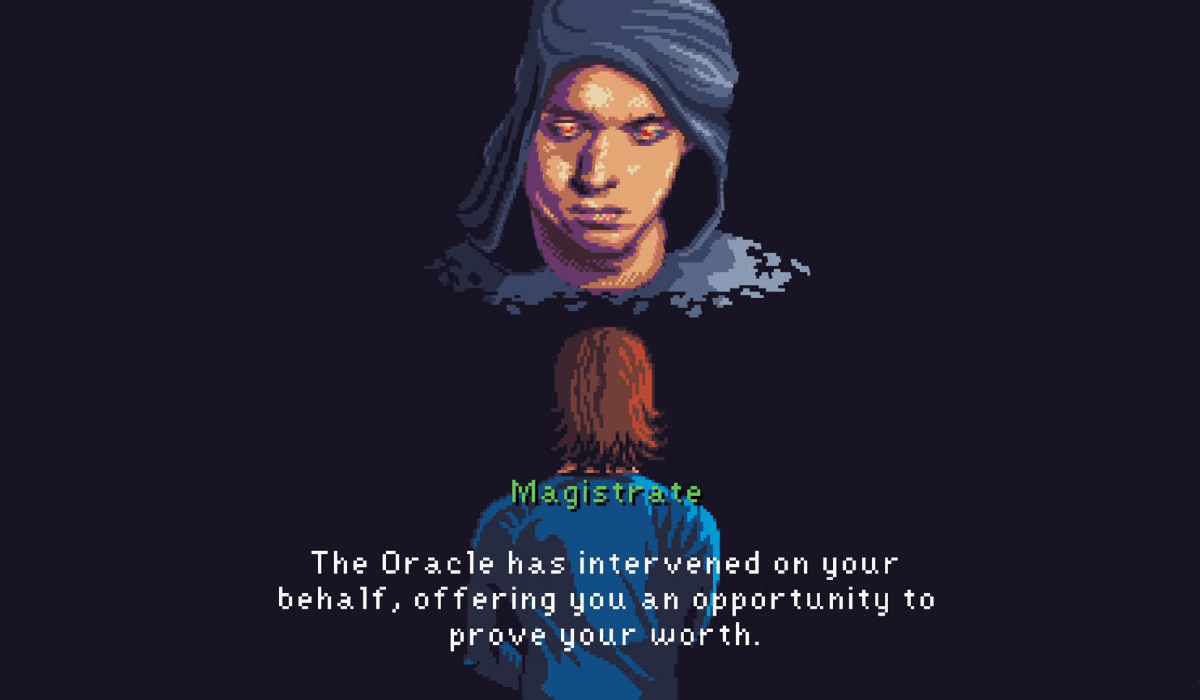
Saturday Morning Nostalgia Trip
As soon as you have control, immediately memories of late ‘80s/early ‘90s adventures such as the Laura Bow series, King’s Quest and The Legend of Kyrandia come to mind. The latter especially so. From the UI to the setting, there is a zany, almost cartoon-like approach to the adventure. As protagonist Leo, you journey across various islands and planets, finding curious items and using them to solve puzzles.
A simple left click is all that’s needed to move, interact, look at and pick up. This may take a little getting used to if you rely on the trusty right click to examine things, but it does keep things nice and streamlined. And—despite not being controller-optimised—it also works perfectly on the Steam Deck with either the trackpad or the right stick. Deck users, rejoice!
The puzzles echo the wacky nature of the setting, but for the most part, they are still grounded in some form of logic. There are very few instances of using the age-old bugbear of trying every item with everything to reach a solution. Not none, mind you, but very few. The world rules may be otherworldly, but they are defined in one way or another.
Many puzzles elicit humorous banter with an array of unusual characters, from a giant talking fish to a disembodied lion head with purifying tears. And you can be sure Leo will have a likeably derpy or snappy retort for all of them. An encounter involving cheering up a hunky musician was so hilariously silly, it gave me the giggles for much longer than it should have.
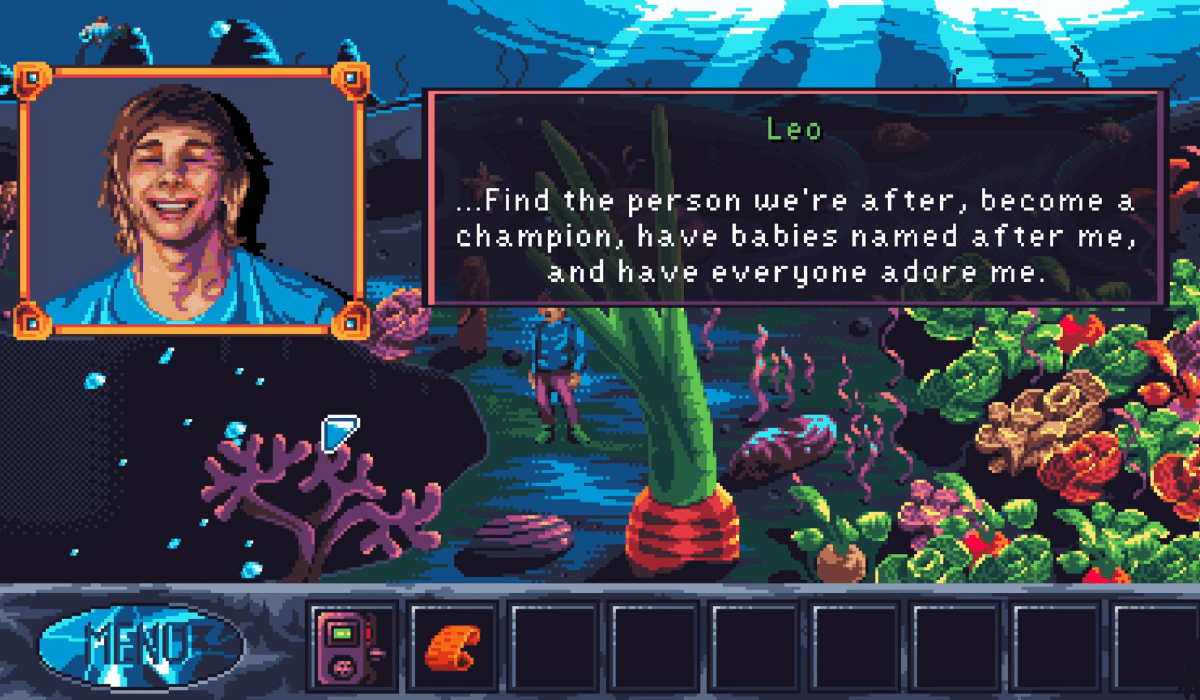
With Friends Like These
As the protagonist, Leo manages to both be straight off a Saturday morning cartoon and grounded in reality. We can all say we’ve met someone like him in high school: a laid-back joker with a good heart who managed to coast his way through most things but ultimately landed in trouble. And thankfully whenever it seems like he could become a caricature, a down-to-earth line brings it back.
Leo is also joined by fellow slackers Jill, Marcus and Olivia; all of whom have unique supernatural abilities that may be useful along the way. Sadly there aren’t many instances to use them, which is a pity as Twilight Oracle‘s outlandish vibe opens the door to a wealth of possibilities. The characters themselves are backed by credible performances too, producing occasional genuinely laugh-out-loud exchanges with Leo. All bar one, and this brings me to a couple of personal niggles.
Wait, Come Again?
While some characters’ performances work well, others are much more hit-and-miss. A couple of more (supposedly) grandiose characters lack the command they should have, meaning some of the jokes don’t land as smoothly. And as mentioned earlier, one of Leo’s companions feels a little flat. Not a huge issue on its own, but when a certain character is integral to a puzzle, it can become a hurdle.
It can be easy to miss crucial information when the delivery is lacking. Plus, once you’ve spoken to a character a few times, they will only repeat the very last thing said. Especially vexing if a crucial clue was a couple of conversations ago. Here is where either a right click or an exchange vaguely alluding to a key aspect would be beneficial, just to subtly jog the memory about vital points. Thankfully it is fairly infrequent.
Also, as Twilight Oracle is a game that doesn’t take itself too seriously, it’s crucial to approach it from a similar angle as a player. Embrace the silly and wacky, roll with it, and it’s a jolly ol’ ride. If you don’t much care for a strong narrative in a game, all the better! Even so, the overarching story is very thin and difficult to invest in, particularly in the final act. With such likable leads, it would feel more gratifying and climactic if they had a slightly more coherent and stronger purpose, both together and as individuals.
Finally, the game is quite short, clocking in at roughly 2 to 2 and a half hours. Given the heavy emphasis on more juvenile humour, a shorter experience can occasionally be complimentary. But adventurers after a lengthier quest with a bit more meat on the bone may come away still feeling peckish. For myself, it’s a bit of both: it did feel the right length for the style, but I do prefer a longer tale so there was a slight hankering for more questing.
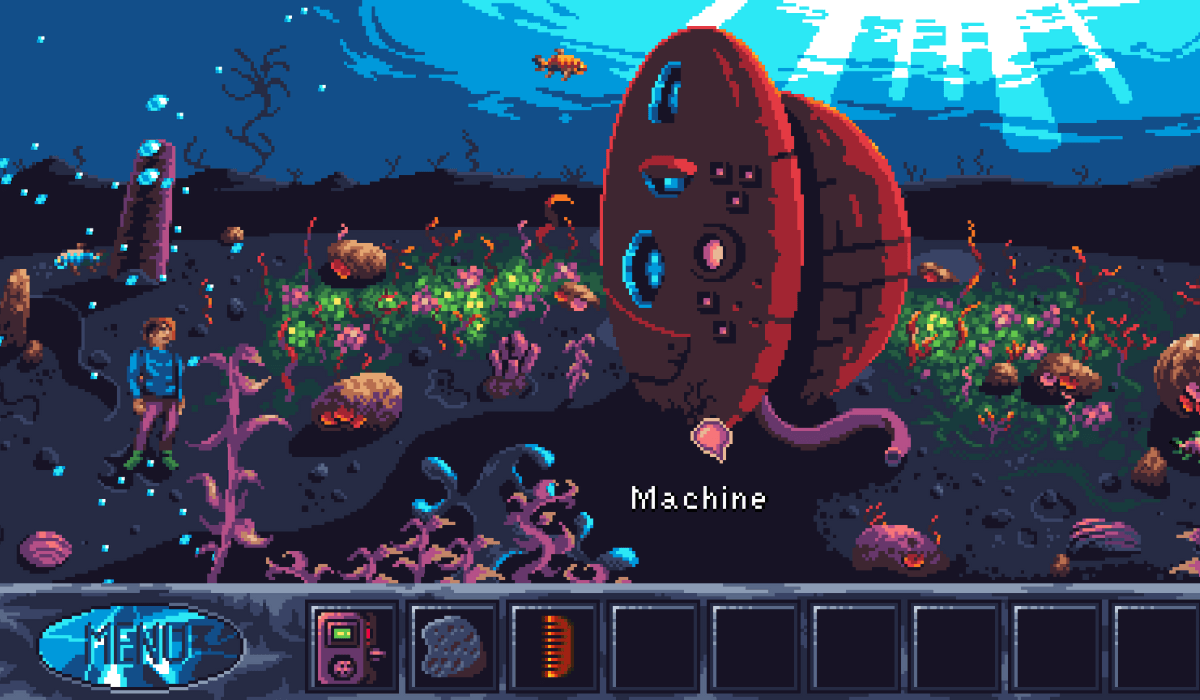
The Best High Contrast Fever Dream
As mentioned earlier, Twilight Oracle wears its retro influences loud and proud. So fans of retro adventures—and just lovers of vibrant pixel art in general—will be in visual heaven! Decked out in pixels just at the edge of ideal chunkiness (for me, at least), the bold and beyond-vivid scenes practically leap from the screen. And favouring a more surreal feel with the worlds and lore, this approach suits it and the UI to a tee.
It also pairs surprisingly well with the detailed character portraits of Leo and his companions. Character animations are kept simple for the most part, giving the portraits more focus. It’s a shame these portraits didn’t extend to more characters, given how striking they are and the animation’s simplicity.
There’s no shortage of retro flair in the soundtrack either. Making full use of synthesiser sounds, each location has a distinct theme with a hint of ‘80s vibrance and surrealism.
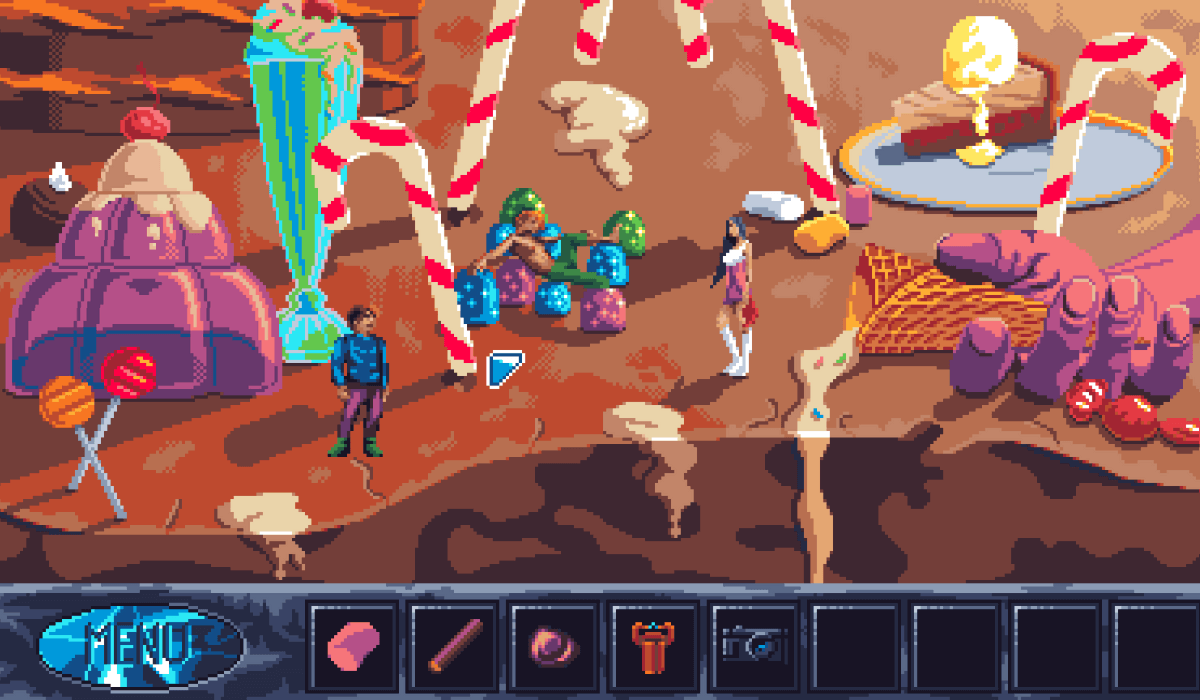
Final Thoughts
For anyone looking for a particularly wacky yet grounded blast from the past, Twilight Oracle is one to check out. The settings are visuals are a joy to look at and there’s plenty of laughs to be had along the way. The voice-acting imbalance may be a little grating and the short length may deter players looking for something more substantial.
But if you’re after a light-hearted little romp in a surreal and colourful universe, you’ll be more than satisfied. And the more you embrace the zaniness of the world and humour, the more fun you’ll have with it. Plus it’s a bargain, to boot!
Thus it receives the Thumb Culture Silver Award!
Just make sure the giant fish doesn’t eat it.

Disclaimer: A code was received in order to write this review.

YouTube | Facebook | Twitter | Instagram | Discord | Podcast
